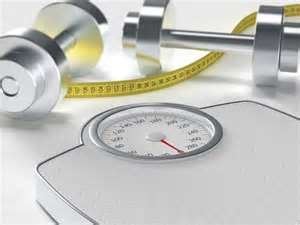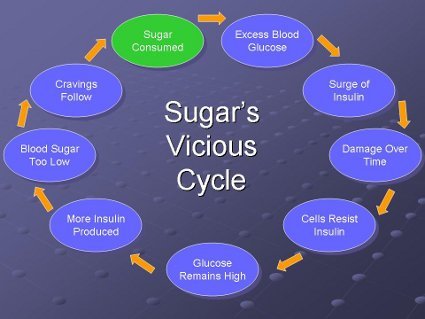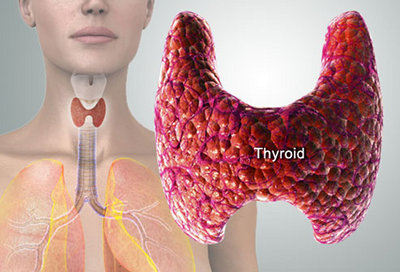| Share |  |
 | |||
Problems Losing Weight - Could It Be Hormonal?
 No matter how strong your willpower or how much you diet and exercise, losing weight and keeping it off is nearly impossible if the hormones that manage the balance between the calories you take in and the rate at which you burn them off are out of whack. Hormones play an essential role in the weight- regulating system of the body by communicating messages that control appetite, food intake and metabolism (the rate at which our bodies turn food into energy).
No matter how strong your willpower or how much you diet and exercise, losing weight and keeping it off is nearly impossible if the hormones that manage the balance between the calories you take in and the rate at which you burn them off are out of whack. Hormones play an essential role in the weight- regulating system of the body by communicating messages that control appetite, food intake and metabolism (the rate at which our bodies turn food into energy).
When the system works correctly, it lets the body know to consume calories when they are needed. If anything is off balance, hunger-stimulating hormones create powerful cravings while hormones that regulate energy reduce the rate at which our bodies burn calories. If the body’s appetite control center is out of balance, a person eats when they don’t need to or eats more than they need which results in weight gain. The fact that a person is overweight signifies some disruption exists in the weight-regulating systems that match calorie intake with energy expenditure.
Every aspect of eating involves various hormones. If the stomach is empty, hunger signals are sent to the brain and body by hormones. The release of certain hormones helps to prepare food for digestion. When digested carbohydrate food molecules enter the bloodstream, a hormone is produced by the pancreas to usher glucose into cells. Hormonal messages are sent by fat cells to the brain to tell us to stop eating and to let the stomach know when it is full.
Weight gain and difficulty losing weight result when the body starts to ignore the normal signals that control appetite and metabolism. Correcting the causes of hormones gone awry can help you reset your metabolism and lose that excess fat for good.
Insulin - the Fat-Storing Hormone
The hormone that has the most impact on body weight is insulin. The majority of extra fat that people carry in their bodies is from eating foods or drinking beverages that quickly turn to sugars in the blood and cause their body to overproduce this fat-storing hormone.
Consuming sugar and too many of the wrong kinds of carbohydrates creates a dramatic surge of blood sugar that triggers the release of large amounts of insulin at one time. Insulin’s job is to lower concentrations of glucose in the bloodstream by ushering it into cells so it can be converted to energy. Limited amounts of whatever glucose the body cannot immediately use for energy are then stored by insulin in liver and muscle cells as glycogen (the storage form of glucose) to create back-up reserves for when blood sugar gets low and no new fuel is available. When those stores are full, insulin takes any surplus blood sugar and stores it as fat. If more food that easily breaks down to  simple sugars is consumed before those stored reserves are utilized, those calories will go straight to fat stores.
simple sugars is consumed before those stored reserves are utilized, those calories will go straight to fat stores.
Insulin’s effect on weight is multi-faceted. The higher blood sugar levels rise, the more insulin is produced and the more rapidly blood sugar levels drop. Drops in blood sugar result in loss of energy and produces the type of hunger and cravings that often compel people to ingest more sugar or refined carbs (willpower rarely wins over low blood sugar). This puts them on a blood sugar roller coaster that makes it difficult to resist overeating and unhealthy food choices.
Many people’s weight problems occur when their cells become resistant to insulin due to its constant overproduction and presence in the bloodstream. Insulin resistance causes blood sugar levels to remain high since insulin can no longer successfully usher glucose into cells. This triggers the pancreas to produce more and more insulin, which increases fat storage and shuts off fat burning. Keep in mind that the body will not burn fat for energy when there are still levels of insulin and glucose circulating in the blood and glycogen reserves in liver or muscle cells are not depleted. When insulin levels remain low, the body is able to tap into stored fat and burn it for fuel more easily. When insulin resistance develops, nearly every calorie is converted to fat.
It is also important to realize that when cells are resistant to insulin, they also become resistant to other weight related hormones that control hunger and tell the body when it is full. Controlling insulin levels by keeping blood sugar levels balanced is the single most important thing you can do to ensure successful weight loss and protect your health as well from the disease-causing damage high insulin levels produce.
Learn to Listen to Leptin
 Leptin is an appetite suppressing hormone produced by fat cells to let the brain know the body is satisfied and that fat reserves are sufficient enough to start burning calories. Only discovered and studied since 1995, this hormone is now considered the “master regulator of appetite.”
Leptin is an appetite suppressing hormone produced by fat cells to let the brain know the body is satisfied and that fat reserves are sufficient enough to start burning calories. Only discovered and studied since 1995, this hormone is now considered the “master regulator of appetite.”
When leptin is released from fat cells, it travels to the appetite control center of the brain (hypothalamus) and bonds with leptin receptors containing neuropeptides which regulate appetite and the rate of metabolism. Once leptin bonds, it turns off the particular neuropeptide (neuropeptide Y) that is responsible for increasing appetite and slowing down metabolism. The messages leptin sends act like a yellow light at an intersection, letting a person know that their stomach is getting full and they need to stop eating. Properly working leptin signals communicate to the body that it is time to stop storing fat and shift instead to fat burning.
 The more a person overeats at a given time, the higher leptin levels rise as the body attempts to communicate the message “enough already!” If a person continues to ignore these normal weight-regulating drives, regular over-secretion of leptin can lead to an overabundance in the bloodstream. The signals become easier and easier to ignore as constant high levels impair the function of leptin receptors to the point where they cannot receive the message leptin is trying to send. In other words, constant overexposure makes a person resistant to this hormone’s appetite-suppressing effects and the brain no longer gets the message that the stomach is full. Stress, loss of sleep and nutrient deficiencies can also contribute to leptin resistance.
The more a person overeats at a given time, the higher leptin levels rise as the body attempts to communicate the message “enough already!” If a person continues to ignore these normal weight-regulating drives, regular over-secretion of leptin can lead to an overabundance in the bloodstream. The signals become easier and easier to ignore as constant high levels impair the function of leptin receptors to the point where they cannot receive the message leptin is trying to send. In other words, constant overexposure makes a person resistant to this hormone’s appetite-suppressing effects and the brain no longer gets the message that the stomach is full. Stress, loss of sleep and nutrient deficiencies can also contribute to leptin resistance.
When the body is desensitized to leptin, it thinks it is starving and slows down metabolism as a self-protective mechanism. Insensitivity to leptin can make a person feel constantly hungry and compelled to eat more and more, which leads to increased weight and less ability of the body to regulate hunger hormones. Higher levels of leptin also inhibit the function of fat burning enzymes.
If an overweight person who has developed leptin resistance goes on a low-calorie diet, leptin levels drop as body fat decreases. However, decreased leptin triggers appetite-stimulating neurons (neuropeptides Y) and a drop in calorie intake increases an appetite-stimulating hormone known as ghrelin. This explains why people become even hungrier when they go on a diet and why they end up regaining all the weight they lost within a year.
Just like with insulin resistance, the only way to reverse leptin resistance and to reestablish proper hormone signaling is to remove what caused them both to surge in the first place. Since fat stores begin with too much glucose entering the blood stream at one time, eliminating sugars, refined and starchy carbohydrates is the best place to start (this would include breads, pastas, white rice, potatoes, etc. that quickly break down to sugar in the digestive tract). Fructose should be especially avoided due to its clear association with leptin resistance in studies.
 Once you get these foods out of your system and begin to break the addiction to sugar while, at the same time, adding to your diet plenty of good fats (omega-3 fats such as fish oil are linked with decreased hunger) and nutrient-rich non-starchy vegetables along with sufficient amounts of quality lean protein, you will keep your blood sugar levels steady and no longer get hungry to the point where you are prone to overeat. Diets full of processed foods contribute to leptin resistance while whole natural foods help repair leptin sensitivity. Insulin resistance and leptin resistance go hand in hand and have the same root cause of poor dietary choices and eating habits. For help in getting free of sugar and carbohydrate addictions, I would refer you to my articles “Sugar Bondage – Why You Need to be Free – Part 4, “Breaking Free of Sugar Addiction” and “The Types of Carbs Matter." For ideas about how and why to steer clear of processed foods, I recommend you read “Eat Real Food." The principles and recommendations contained in these articles apply to balancing all of the hormones related to weight and health.
Once you get these foods out of your system and begin to break the addiction to sugar while, at the same time, adding to your diet plenty of good fats (omega-3 fats such as fish oil are linked with decreased hunger) and nutrient-rich non-starchy vegetables along with sufficient amounts of quality lean protein, you will keep your blood sugar levels steady and no longer get hungry to the point where you are prone to overeat. Diets full of processed foods contribute to leptin resistance while whole natural foods help repair leptin sensitivity. Insulin resistance and leptin resistance go hand in hand and have the same root cause of poor dietary choices and eating habits. For help in getting free of sugar and carbohydrate addictions, I would refer you to my articles “Sugar Bondage – Why You Need to be Free – Part 4, “Breaking Free of Sugar Addiction” and “The Types of Carbs Matter." For ideas about how and why to steer clear of processed foods, I recommend you read “Eat Real Food." The principles and recommendations contained in these articles apply to balancing all of the hormones related to weight and health.
Ghrelin – the Hunger Hormone
Ghrelin is the other half of the appetite-controlling hormones. Known as the “hunger” hormone, ghrelin is produced in the stomach and small intestine at regular intervals and then travels to the hypothalamus to turn on appetite in order to let the body know the stomach is empty and it is time to eat. Under normal circumstances, ghrelin levels go up when the stomach is empty and stay up until the body receives the nutrients it needs. It also works by triggering reward centers in the brain to make food look more appetizing.
Going on low-calorie diets and skipping meals keeps ghrelin levels high and ratchets up the intensity of hunger pangs. The more that low blood sugar triggers the release of this hormone, the emptier the stomach feels and the hungrier a person gets.
One benefit of ghrelin is that it helps the pituitary release growth hormone which increases muscle mass and helps to raise the metabolic rate. Ghrelin is needed to help the body move through the necessary phases of sleep in which big pulses of growth hormone and leptin are released. Because it is only released when the stomach is empty, it is advisable not to go to bed within a few hours of eating. If you do not get enough deep-wave sleep to release sufficient growth hormone, the ability of your body to process sugar decreases.
Can a Stress Hormone Pack on the Pounds?
Cortisol is one of se veral hormones secreted by the adrenal glands in response to stress. The function of this hormone is to convert proteins stored in the liver into glucose to give the brain and body extra fuel that may be needed to deal with stressful situations. People generally think in terms of mental, emotional and circumstantial causes of stress. But elevated levels of stress hormones can also stem from diet and lifestyle factors such as yo-yo dieting, unaddressed food sensitivities, bingeing, consuming stimulants like caffeine, severe calorie restriction and not getting enough restful sleep. The body interprets any form of prolonged stress as a famine and reacts by going into a survival mode in which it hoards calories to keep fat reserves on hand.
veral hormones secreted by the adrenal glands in response to stress. The function of this hormone is to convert proteins stored in the liver into glucose to give the brain and body extra fuel that may be needed to deal with stressful situations. People generally think in terms of mental, emotional and circumstantial causes of stress. But elevated levels of stress hormones can also stem from diet and lifestyle factors such as yo-yo dieting, unaddressed food sensitivities, bingeing, consuming stimulants like caffeine, severe calorie restriction and not getting enough restful sleep. The body interprets any form of prolonged stress as a famine and reacts by going into a survival mode in which it hoards calories to keep fat reserves on hand.
Elevated cortisol levels serve a purpose in the short term but when stress is prolonged, it can be damaging to health and increase weight gain by raising blood sugar levels to the point where the body overproduces insulin and insulin resistance develops. When insulin cannot get sufficient amounts of glucose into cells, the resulting drop in energy sends signals to the brain to eat more and more. Extra glucose not used for energy is stored as body fat.
Because the abdominal area of the body possesses more cortisol receptors, stress and high cortisol levels result in increased amounts of “belly fat”. Scientists have discovered that this type of fat is almost like an endocrine organ itself that reacts to the stress and spurs the deposit of more abdominal fat. Continued stress and high cortisol levels makes the body more resistant to weight loss since it remains in survival mode.
Cortisol lowers leptin levels and raises levels of the neuropeptide that stimulates appetite, which can increase cravings for high-carb and high-fat foods and make a person eat more than they normally would. High cortisol also contributes to loss of muscle mass which slows down metabolism.
To keep cortisol levels low, it is important to learn to manage stress and make sure the body is supported with the nutrients needed to overcome its adverse effects, giving special consideration to the adrenal glands. Since lack of sleep contributes to high cortisol, adequate rest is also important for lowering levels. Sugars, simple carbs, refined grains and processed foods should be avoided as much as possible. Caffeine should be limited due to the fact that it stimulates the central nervous system and keeps the emergency stress response system continually switched to the “on” position. This can fatigue the adrenal glands over time and cause insulin and cortisol levels to rise the same as other types of stress.
Estrogen and Female Fat Cells – a Vicious Cycle
 Because of their role in procreation, women were created with more fat cells and a greater ability to store fat. Estrogen-related fat stores typically occur in the hips, thighs and buttocks where fat cells are larger and have a greater fat-storing capacity. The more pear shaped a women is, the more sensitive their fat cells are to the effects of estrogen. When a woman does lose weight, it comes off last in these areas since fat cells located in the lower body tend to process insulin and burn fat more slowly.
Because of their role in procreation, women were created with more fat cells and a greater ability to store fat. Estrogen-related fat stores typically occur in the hips, thighs and buttocks where fat cells are larger and have a greater fat-storing capacity. The more pear shaped a women is, the more sensitive their fat cells are to the effects of estrogen. When a woman does lose weight, it comes off last in these areas since fat cells located in the lower body tend to process insulin and burn fat more slowly.
As a woman approaches and enters menopause, the body reacts to the decline in estrogen from the ovaries (estradiol) by producing more of another form of estrogen (estrone) from fat cells to compensate for insufficient hormone levels. Since the body must now rely more on the estrogen produced in fat cells, it is less apt to let go of body fat. The result is a vicious cycle in which fat cells become larger and increase their fat-storing capability.
Fat cells produce estrogen; estrogen slows down metabolism
to increase fat storage in fat cells that, in turn, produce more estrogen.
Studies show that levels of estrogen in women who are postmenopausal and overweight are fifty to one hundred times higher than women with normal weight. Increased levels of estrone also trigger metabolic changes that shift fat from the lower areas of the body to more abdominal or “belly” fat that is a far greater risk to health. Clinical research and studies clearly show that abdominal fat increases women’s risk for breast cancer, heart attacks, type 2 diabetes, Alzheimer’s, dementia, high blood pressure and high cholesterol levels.
 Going on low calorie diets or engaging in intense levels of exercise with estrogen-based fat gain only increases the size of fat cells and makes them more efficient at storing fat. Losing weight from under-eating or over-exercising alerts the body of estrogen loss and spurs it to produce more. This vicious cycle accounts for why it may be so hard for a woman to keep weight off in this stage of life.
Going on low calorie diets or engaging in intense levels of exercise with estrogen-based fat gain only increases the size of fat cells and makes them more efficient at storing fat. Losing weight from under-eating or over-exercising alerts the body of estrogen loss and spurs it to produce more. This vicious cycle accounts for why it may be so hard for a woman to keep weight off in this stage of life.
Besides the normal fluctuations and shifts in hormone production that take place when women approach and go through the “change of life”, the most common cause of weight-related effects of estrogen is a type of hormone imbalance known as “estrogen dominance”. Decreasing levels of progesterone and subsequent imbalanced estrogen levels can begin as early as a woman’s thirties (more information about the causes and what you can do about it can be found in my article “Progesterone – the Hormone Harmonizer."
Although a number of different factors contribute to a woman developing estrogen dominance (see my article “Healthy Hormone Balance," the most prevalent by far is the impact of “xenoestrogens” in our modern culture. Xenoestrogens are estrogen mimics that come from such things as petrochemical-based solvents, pesticides, cleaning products, lotions, creams and other personal care products, plastics, lawn and garden products, synthetic hormones and hormone fed meats and dairy products. Not only do xenoestrogens disrupt natural hormone systems by occupying estrogen receptor sites but they also get easily lodged in fats cells due to the fact that they are fat-soluble. Even more problematic is the fact that they do not break down easily for the body to be able to eliminate them, which prolongs their hormone-disrupting effects on a woman’s weight and health.
Estrogen dominance interferes with the body’s ability to burn body fat for calories, impacts fat distribution, increases insulin resistance and cravings for sugar, which in turn, creates more fat cells that produce more estrogen and greater estrogen dominance. In most cases, any woman who is 20 percent or more over their ideal weight is estrogen dominant to some degree.
Hormones that Raise and Lower Metabolic Rate
 Thyroid gland hormones play an essential role in controlling the rate at which fat is burned and energy is produced in the body. A hormone referred to as TSH (Thyroid Stimulating Hormone) signals the thyroid to take iodine out of blood and turns it into thyroxine (T4) which is then converted to the active form of thyroxine (T3). The less T3 is produced, the slower a person’s metabolism will function and the fewer calories they will use, which leads to increased weight gain.
Thyroid gland hormones play an essential role in controlling the rate at which fat is burned and energy is produced in the body. A hormone referred to as TSH (Thyroid Stimulating Hormone) signals the thyroid to take iodine out of blood and turns it into thyroxine (T4) which is then converted to the active form of thyroxine (T3). The less T3 is produced, the slower a person’s metabolism will function and the fewer calories they will use, which leads to increased weight gain.
Stress, sickness, environmental toxins, poor diet, age, medications and other factors impact how efficiently this conversion happens and how much active T3 is available at any time. The thyroid gland is negatively affected by high levels of cortisol and estradiol but is supported by growth hormone and progesterone. For more information on the relationship between the thyroid gland and weight or to learn more about how to nutritionally support and enhance the health of the thyroid gland, I would refer you to my article from my “Health-Gain/Weight-Loss” series entitled “The Thyroid Factor.”
Growth hormone is another hormone involved in metabolism that is a critical hormone for building muscle, burning fat, and increasing overall health and longevity. It helps to raise the metabolic rate by preventing muscles from breaking down due to the way it facilitates the absorption and assimilation of amino acids into them. Fat cells have growth hormone receptors that trigger the breakdown and burning of fat. These receptors also play a significant role in preventing fat cells from absorbing or holding onto any fat floating around in bloodstream. Growth hormone also stimulates the activity of fat burning enzymes.
The best way to support healthy levels of growth hormone is to avoid the factors that tend to suppress its availability and practice those things that increase it. Growth hormone is suppressed by elevated blood sugar levels and increased levels of circulating insulin. Hormones from pesticides and other contaminants can impact levels as well. Growth hormone is increased by protein consumption, intense exercise and good sound sleep due to the fact that it is released in the greatest quantities during stage four sleep.
Conclusion
While other hormones are involved in metabolism and weight control, the one I have chosen for this article are some of the major players. As you can tell, there is a lot more to weight loss than just willpower, calories in/calories or more exercise, despite myths from the diet industry and media. The fact that over 95% of dieters gain back the weight they lost and more is a good indication that fad diets do not work. Successful long-term weight loss will not happen if the person is fighting hunger. The only way to keep hunger from getting the upper hand is to balance and manage the hormones responsible for regulating it.
Copyright © 2008-2015 Lucinda Bedogne, CNHP, CNC
Post Your Comment...
|
|
||||||||||||


